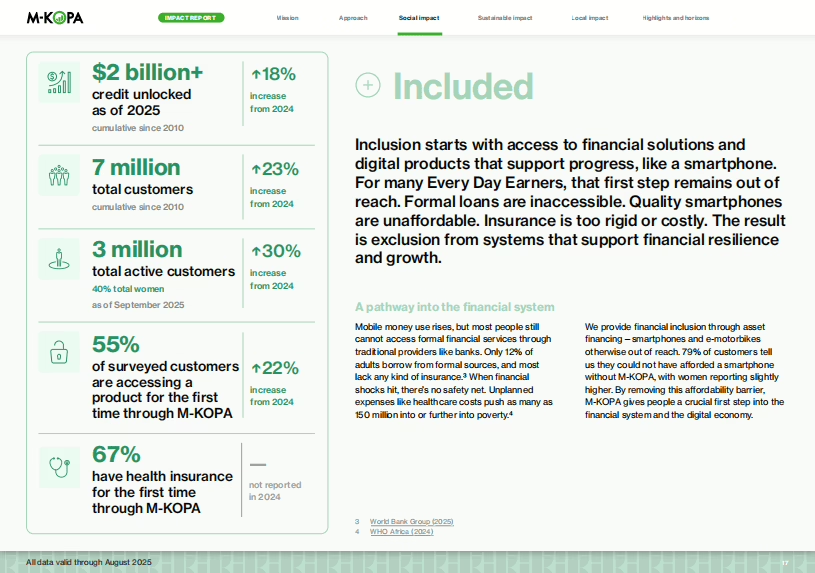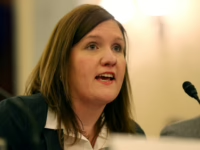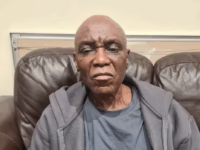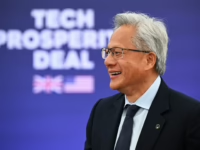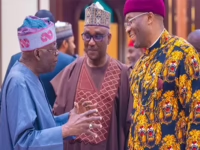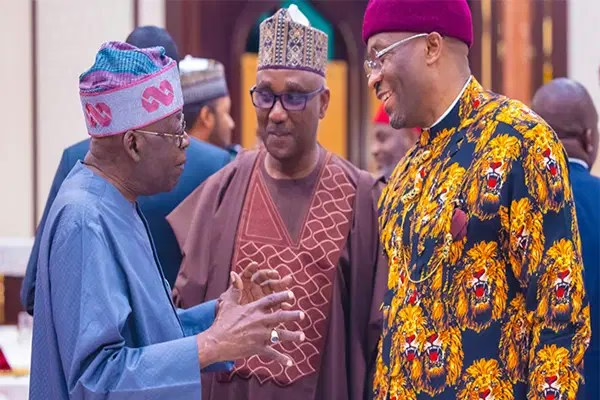After numerous unsuccessful efforts to amend Nigeria’s problematic 1999 Constitution, President Bola Tinubu alongside prominent National Assembly officials have once again expressed their dedication to constitutional reforms. However, their statements remain largely aspirational, lacking firm commitments or clear action plans.
During a National Public Hearing held in Abuja, Senator George Akume, speaking on behalf of the President as Secretary to the Government of the Federation (SGF), described the reform initiative as a “unique chance” to enhance governance structures, strengthen federalism, and safeguard citizens’ rights. Yet, for many analysts and citizens, these assurances echo past promises that have failed to materialize into substantive change.
Akume emphasized, “The Constitution stands as the highest legal authority in the country. It is dynamic and must evolve to meet the evolving needs, hopes, and challenges faced by our people.” He called on all stakeholders to engage with a sense of national pride, accountability, and constructive debate, assuring that the government would prioritize the outcomes of this process.
Nonetheless, skeptics view these declarations as routine political performances. Historically, constitutional review committees have been used by successive administrations to appease public dissatisfaction without addressing core issues such as decentralization, autonomy for local governments, and enhancing electoral transparency.
Related: Naira dips by N0.71 against the dollar at official exchange rate
President Tinubu also commended the committee’s efforts to involve diverse groups in the discussions but refrained from providing a definitive schedule for implementing any reforms, fueling doubts about the administration’s genuine commitment.
House Speaker Rep. Abbas Tajudeen shared the President’s hopeful outlook, labeling the hearing a “pivotal moment” for Nigeria’s democratic progress. He encouraged widespread public participation but, like Tinubu, stopped short of promising concrete timelines for reform enactment.
“Delaying reform is tantamount to denying it, and Nigerians deserve transparency and resolution. We plan to expedite voting on the proposals and allow states sufficient time to review and endorse the people’s decisions,” Tajudeen stated.
However, this pledge contrasts sharply with the history of constitutional amendments in Nigeria, many of which have stalled in legislative gridlock or quietly faded after initial fanfare.
Among the reform ideas Tajudeen mentioned were guaranteed seats for women, representation for persons with disabilities, and gender-based quotas in ministerial appointments. He also referenced advisory positions for traditional rulers-concepts that have been debated for years but remain largely unimplemented.
Deputy Speaker Rep. Benjamin Kalu, who leads the Constitution Review Committee, revealed that 87 amendment proposals have been generated from public hearings and consultations. These include critical topics such as electoral reforms, the introduction of independent candidates, and the devolution of policing authority.
“The ultimate power in this process lies with you, the sovereign citizens of Nigeria; constitutional reform is a long-term endeavor, not a quick fix,” Kalu remarked.
Yet, for a populace weary of protracted reform efforts that yield little progress, such remarks may only deepen mistrust. As Nigeria continues to face challenges like insecurity, corruption, and institutional weaknesses, many question whether this latest reform dialogue is merely a stalling tactic designed to placate public demand rather than drive meaningful transformation.





